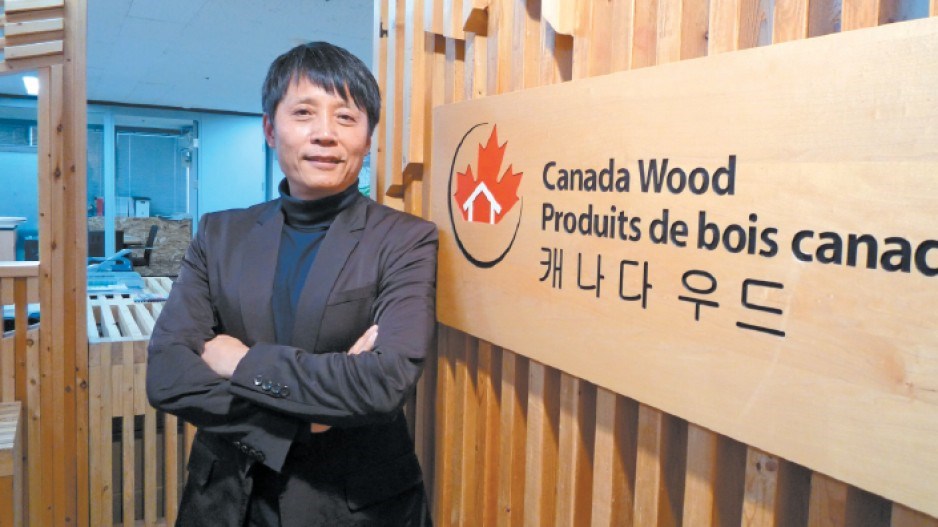There's no better place to get a glimpse of the speed at which the South Korean economy is changing than a visit to Dongdaemun, a glitzy fashion district in Seoul where the country's top designers showcase their latest clothing lines.
Fashions change by the week, fuelled by young and trendy shoppers with money to spare and a passion to be on the cutting edge of pop culture.
Department stores adorned with wall-high video screens and bathed in constantly changing LED lights draw them in, where boutique retailers offer fashions that compete with pricier global brands for a fraction of the cost.
It's a metaphor for the South Korean economy, with its focus on quality products that rival Japan's but at the lower prices demanded by China. In Korea, change is the one constant.
But right now, the biggest change in the Korean economy affecting Canadian business, is not fashion; it's the speed with which South Korea is talking free trade agreements with other countries. Yet, according to a top South Korean trade official, talks with Canada have been "sort of stuck."
Auto manufacturers in Canada have been a key stumbling block, said Lee Seong-Ho, deputy director-general for the South Korean Ministry of Trade, Industry and Energy. Lee made the comment in a news conference at Foreign Investment Week, a three-day-long conference held at Seoul at the end of October. The goal of the conference was to attract direct foreign investment into Korea.
Canadian investors attending the conference said they were struck by the speed of change taking place in the Korean economy and the slow pace at which free trade talks between Canada and Korea are proceeding.
"Koreans have a unique feature; they know how to adapt quickly," said Soon Kim, president of the Newgen Group of Companies of Vancouver. "I can see the changes that have taken place here within a year."
Kim's focus is real estate, and he was drawn to Korea by land development policies that offer lower business risks for investors.
Free trade with Korea is essential, said K.J. Kim, chief executive officer of the SMK Group, a Vancouver-area venture incubation company.
He is seeking a $100 million investment from Korea for export-oriented food and agricultural enterprises in British Columbia and Manitoba. He is also looking for investment opportunities in Korea. Investment and trade are always a two-way street, he said.
"Free trade will give us a better edge. It will be easier for us to market in Korea and to invest in Korea.
"But it's not just one-sided. We have the essentials Asia needs: clean water and food. Free trade will make it easier for us to sell our products in Korea, and if we are successful, these people in Korea will want to invest in Canada."
Wood products manufacturers in B.C. are among the losers in the failure to reach an agreement. They risk losing market share to the United States, where a free trade agreement that was implemented in March 2012 already means lower tariffs for Washington and Oregon companies than those faced by producers in B.C.
Ottawa has been focused on reaching a free trade agreement with the European Union, but for British Columbia, Korea represents a bigger market.
B.C. exports more to Korea than to the European Union. In 2012, it exported $1.9 billion worth of goods to Korea, compared with $1.8 billion to the European Union. On commodities like lumber and engineered wood products, companies in B.C. face duties of 5% and 8%, respectively. In the U.S., those duties are now 3% and 6%. When the U.S.-Korea agreement is fully implemented by 2016, 95% of all Korean duties on U.S. products will be gone. "We face an uneven playing field with the U.S. because they have already ratified a free trade agreement," said Tai Jeong, director of Canada Wood Korea, the marketing arm for wood products, primarily from B.C. and Alberta. "That 5% gap and 8% cent gap will be a key issue. We will be losing our competitive edge."
The Korean Ministry of Trade, Industry and Energy is prepared to rekindle talks with Canada, Lee said. Back-channel talks are already taking place and he expects more formal talks to resume before the end of the year. The Korea-U.S. agreement played a big role in getting the two sides back to the table.
"The U.S. agreement provides some sort of reference point for both Korea and Canada," he said. "That is natural.
"Obviously it boosts this negotiation in a positive way, but at the same time it can make negotiations to have a right balance more difficult."
Formal free trade talks between Canada and Korea began in 2005 but reached an impasse in 2008. An agreement permitting Canadian beef exports to Korea in 2012 was a positive development in getting the two countries talking again. But the beef deal had no impact on Canadian producers, who could not compete with their duty-free American counterparts. On October 7, Canada Beef, the beef industry's marketing arm, closed its South Korean office.
The Canadian Department of Foreign Affairs and International Trade (DFAIT) had little comment on the status of talks.
"Canada wants to conclude a high-quality and mutually beneficial Canada-Korea FTA," DFAIT spokeswoman Caitlin Workman said in an email. "Canada's overriding goal is to ensure our bilateral relationship moves forward." •
Gordon Hamilton ([email protected]) was in Korea on a fellowship provided by the Korea Trade-Investment Promotion Agency.




